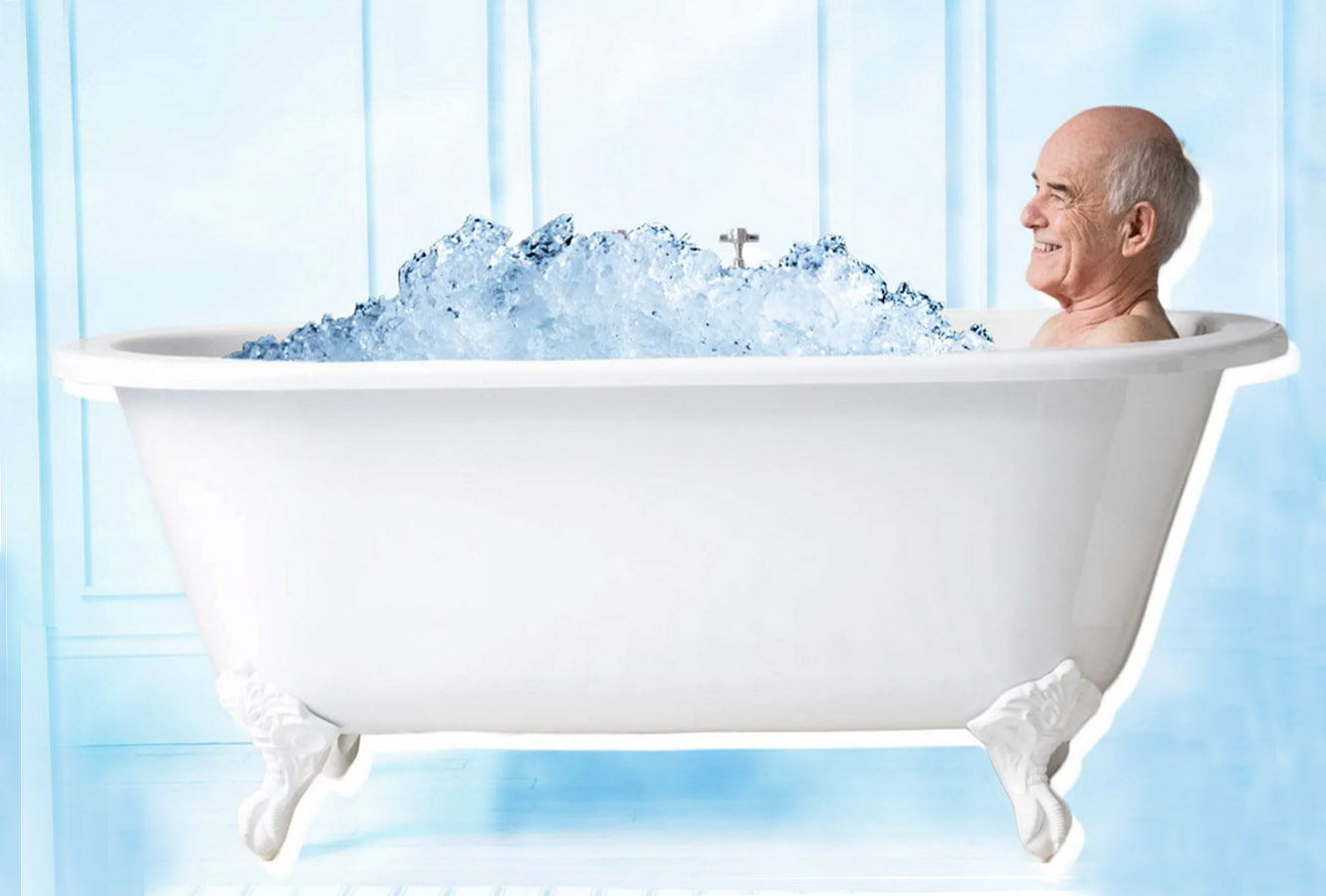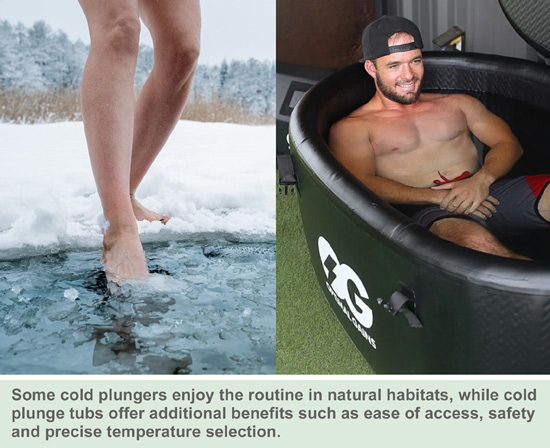Cold plunges—also known as cold therapy and cold water immersion—have numerous health benefits.
Studies have shown that taking a plunge into cold water can aid in swelling reduction, lowering stress, reducing inflammation, improving muscle recovery after strenuous exercise, and more.
But a new study is taking the demonstrated benefits to the next level—literally. Researchers at the University of Ottawa found cold plunges were able to “slow down aging at the cellular level” in just one week.
According to researchers, the study demonstrated that the body’s cells learn to “adapt to cold stress” in short order. During the seven days of daily cold plunges, participants’ cells shifted from emergency mode—represented by inflammation and cell death—to a more efficient system focused on protection and repair.
The study was published in Advanced Biology in November 2024.
Study details
To conduct the study the university researchers recruited ten young men who were required to submerge themselves in 57°F (14°C) water for approximately one hour daily for a period of seven days.
This temperature, while enough to make a person gasp and shiver, is not dangerous for the average person. It is cold enough, however, to create sufficient stress to trigger cellular responses.
The researchers asserted that their study was different than previous cold-exposure studies in the way responses were tracked: The team measured cellular responses throughout the acclimation period, plus simultaneously performed laboratory tests on blood samples before and after the program.
The idea behind this approach lies in the established science that cold baths initially send the body into fight or flight—and that repeated “doses” can be beneficial to immune function.
With this science in hand the researchers hoped to reveal if and how cells would adapt over time. More specifically, the researchers hoped to see exactly how the adaptations tolerated extreme cold.
The results of the detailed tracking confirmed some of the researchers’ assumptions, but also provided surprising new revelations.
The summarized findings provided by the researchers included:
• DAY ONE: The participants’ cells seemed overwhelmed. Their recycling and garbage disposal system—known as the autophagy—had measurably declined.
Meanwhile, inflammation markers increased and “programming signals” for cell death were observed. These type of signals, which can be observed by scientists, typically indicate that cells are being sacrificed rather than saved.
• DAY FOUR: Researchers observed early signs that showed autophagy was beginning to improve; however, cell death signals remained high. According to the scientists, this indicated that the body was learning but had not yet mastered the cold response.
• DAY SEVEN: The most dramatic shift in cell health is revealed. At the end of the one-week tracking, the participants’ cells showed remarkably enhanced autophagy, reduced inflammation and fewer cell death markers.
Writing in the study conclusions, the researchers posited that the remarkable change seen on day seven demonstrated that the bodies of the study participants had shifted from a “sacrifice the damaged cells” approach to a “repair and protect cells” strategy.
Autophagy and disease
In simple terms, autophagy works as the body’s internal recycling system. It removes damaged components and recycles materials, keeping cells healthy and functioning properly.
The new study documented that cold exposure initially stressed this system; however, with repeated exposure, the cellular “recycling system” improved substantially. This improvement goes way beyond reducing a person’s outward appearances—such as shivering—but to real and beneficial changes on the cellular level.
In this study participants reportedly did shiver less by day seven, but the real action was occurring at the microscopic level inside cells.
The relevance of autophagy improvement cannot be understated since defects in autophagy have been linked to various human diseases—including neurodegeneration and cancer. According to JustAPedia, scientific interest in managing autophagy as a potential treatment for these diseases has been growing rapidly.
The researchers noted that cold water conducts heat away from your body about 24 times more efficiently than cold air.
This thermal conductivity creates more pronounced physiological responses than cold air, which helps explain the significant cellular changes observed in just one week. It also likely means that while cold air treatment may be beneficial in a similar fashion, the results would not be as dramatic.
“We were amazed to see how quickly the body adapted,” says study author Kelli King from the University of Ottawa, in a statement. “Cold exposure might help prevent diseases and potentially even slow down aging at a cellular level. It’s like a tune-up for your body’s microscopic machinery.”
– – –
Sources: Advanced Biology (via Wiley Online Library), JustAPedia (Autophagy).



